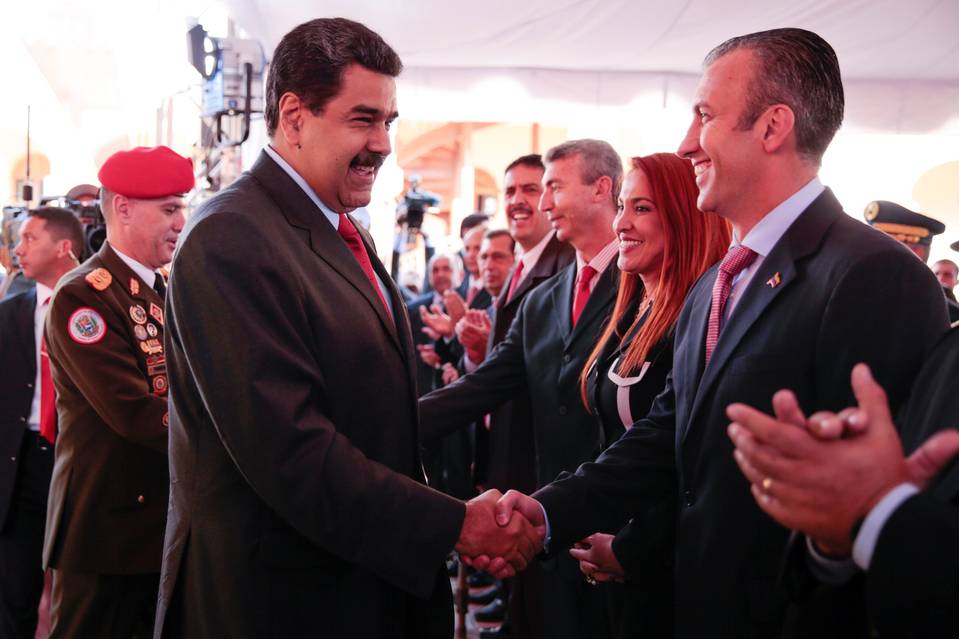Mexico City- Venezuelan President Nicolas Maduro granted his new Vice President Tareck El Aissami new and broad powers through presidential decrees, only a few weeks after he was assigned his post.
These powers, according to observers, could boost Aissami’s political potentials and prepare for the presidential elections in case Maduro was absent from the political scene.
The decree published in the official journal gives Maduro’s vice president authority to expropriate private companies as he sees fit and approve ministers’ budgets.
Moreover, Aissami is authorized to issue economic orders on matters ranging from taxes to foreign currency to hiring practices to state-owned enterprises, among 12 other powers.
The text of the decree says it aims to ensure “the efficiency and effectiveness of the public administration.”
However, a Venezuelan official source said that these authorities give him more power but not in strategic fields, which are still reserved for the military.
Maduro named Aissami, a former minister of the president’s late predecessor Hugo Chavez, earlier this month to crack down on the opposition.
The opposition alleges Aissami, 42, has ties to drug-trafficking gangs and Iran-backed “Hezbollah,” which he denied.
The new vice president is known for his close ties with Chavez and is well trusted by Maduro.
He represents the left wing movement in the country, the Chavezian movement as called by Venezuelans. He had held a number of political posts under Chavez, maintaining good relations with Maduro and making him the second most powerful politician in the country.
In addition to the new powers granted to him, Aissami heads the “Anti-Coup Command,” which was newly created by the Venezuelan president to confront the opposition and whoever attempts to undermine the regime.
The Venezuelan opposition controls the majority of the parliament, yet its powers are very limited, which lets Maduro always pass his decisions through the Supreme Court.
